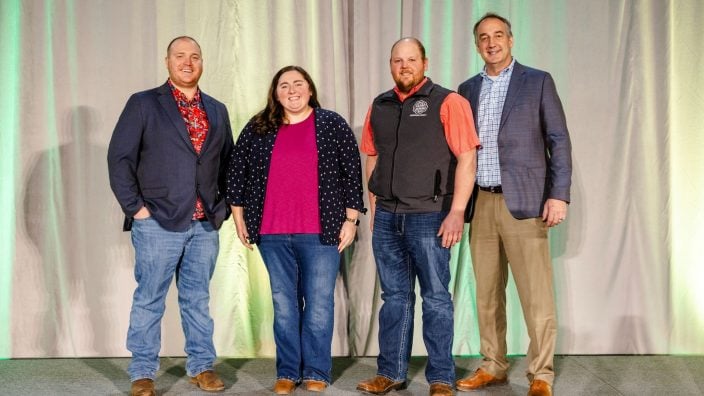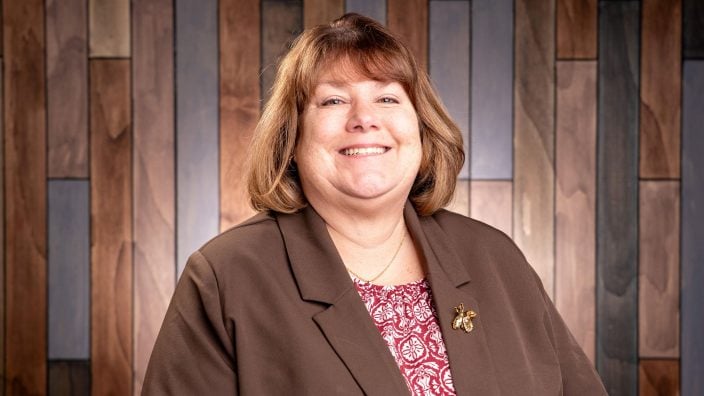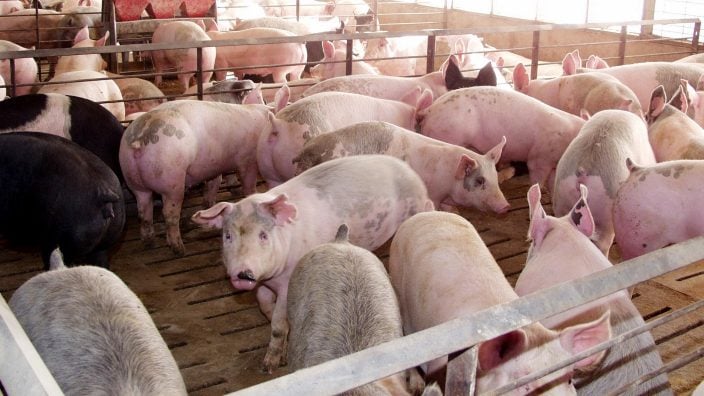Applications for Ohio Farm Bureau Health Plans now available
Members have three ways to apply: contacting a certified agent, calling 833-468-4280 or visiting ohiofarmbureauhealthplans.org.
Read MoreOhio Farm Bureau led a group of state Farm Bureaus representing farmers in the Midwest to write a letter to USDA regarding the recent court order that would effectively end the New Swine Slaughter Inspection System (NSIS), asking USDA to request a stay of the new court decision.
Addressed to Secretary of Agriculture Tom Vilsack, the letter stressed that the reduced line speeds forced by the court order would have adverse impacts on hog producers as it would significantly decrease slaughter capacity.
The letter also cited research from Iowa State economist Dr. Dermot Hayes that estimates the decision would reduce national packing capacity and cause a total economic loss of $80 million for U.S. hog farmers, much of which would be concentrated in Midwestern states:
The hog industry has suffered greatly over the past several years, combating market volatility stemming from African Swine Fever, packing capacity and supply chain issues due to the COVID-19 pandemic, and trade implications from some of our country’s largest pork importers. They can’t afford another setback due to processing capacity reductions.
Over 25% of the nation’s hog slaughter capacity has been enrolled in the NSIS program. In the Midwest, there is even more reliance on the processing capacity provided by these plants. For example, in Ohio nearly 40% of all hogs are processed in plants operating using increased line speeds. In Pennsylvania, it is estimated the decision would have at least a 20% impact on pork processing capacity.
The letter shared with Secretary Vilsack emphasized that the nation’s hog farmers will suffer the greatest harm from upstream impacts, adding:
With the current production cycle already underway, farmers will have few options to have hogs processed if current processing capacity is reduced. In the case of independent producers, hogs may have nowhere to go as processor-owned hogs will be given priority. Given the impact and administrative nature of the court’s ruling, our organizations call on you to expend all means necessary to ensure producers are not adversely impacted. First and foremost, USDA should request a stay of the recent court decision.
Ohio Farm Bureau is continuing to work directly with stakeholders impacted by this ruling and is collaborating with them to seek out solutions.


Members have three ways to apply: contacting a certified agent, calling 833-468-4280 or visiting ohiofarmbureauhealthplans.org.
Read More

Legacy nutrient deductions enable new farmland owners to claim deductions on the nutrients within the soil on which healthy crops depend.
Read More

Farmers, agribusinesses and community members are encouraged to nominate their local fire departments for Nationwide’s Nominate Your Fire Department Contest through April 30.
Read More

Introduced by Sen. Paula Hicks-Hudson, SB 120 would establish the Urban Farmer Youth Initiative Pilot Program.
Read More

Gases, vapors, and fumes can all create risk. How can we measure and protect ourselves from them?
Read More

The Ohio Farm Bureau’s Young Agricultural Professionals State Committee has named its 2026 leadership and the individuals who will be serving on the state committee for 2026-2028.
Read More

The Ohio Farm Bureau Foundation has multiple scholarships available to Ohio students from rural, suburban and urban communities who are pursuing degrees with a connection to the agricultural industry.
Read More

With 100% bonus depreciation now permanent, farmers can deduct the full cost of a new agricultural building in the year it’s placed in service.
Read More

Lincoln Deitrick was named the Outstanding Young Farmer, Denver Davis won the Excellence in Agriculture Award, and Margaret Houts won the Discussion Meet.
Read More

Michelle Downing of Franklin County has been named finance director of county operations for Ohio Farm Bureau.
Read More